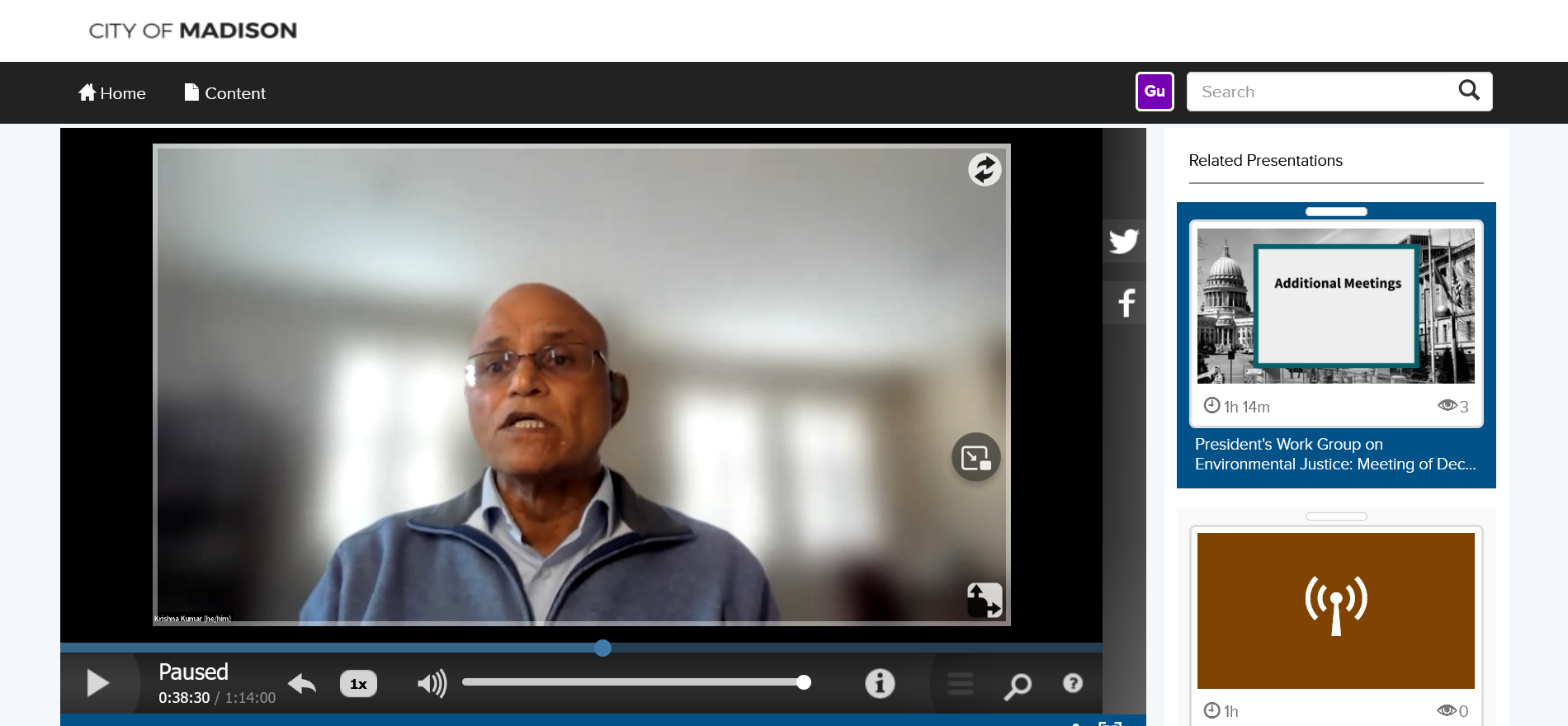[Above: Krishna Kumar, Madison Water Utility General Manager, presenting “additional information” about PFAS & Well 15 at the Dec. 20 Presidents Working Group on Environmental Justice.]
***
On December 13, I posted this piece about the Madison Water Utility’s November 29 presentation to the President’s Work Group on Environmental Justice. It outlined several incorrect and/or misleading statements made by the MWU’s General Manager, Krishna Kumar, at the presentation. After reading my article, Mr. Kumar made a special appearance at the December 20 work group meeting to present “additional information.” His presentation begins around 29:11.

He graciously thanked me for the post, MEJO’s past engagement, and the engagement and advocacy of other citizens and neighborhood associations on the north and east sides. We appreciate that. [1]

He admitted that, as I wrote in my post, Well 15 was not shut down because it was over the Wisconsin DHS “Hazard Index” (though he didn’t say why it was shut down–see my Dec. 13 post for that story). He acknowledged that the nine wells a slide said had “zero” PFAS in them didn’t really have zero PFAS–levels were just at or below detection limits with the analytical method used in 2021. PFAS results from 2021 are now posted on the MWU website.

Responding to questions I raised at the end of my December 13 post, Kumar promised that:
“The Water Utility will not turn back on Well 15 without filtration if PFAS measurements exceed the Health Index”(he meant “Hazard Index”) and “The Utility fully commits to inform and engage the public, especially those in the Well 15 service area, and policy makers before a decision is made to turn back the well on.”

***
Thank you, Mr. Kumar, for recognizing our and the community’s work and correcting the misinformation you previously shared. Thank you for assuring that unfiltered Well 15 water will not be served to the community again and that the community will be engaged before the well is turned back on.
Now that these promises have been made…
Will alders and other elected officials, citizens, and neighborhood associations hold the Water Utility to them?
What will “informing and engaging the public” entail?
Will community engagement be honest and meaningful? Will it actually engage the most vulnerable people in the Well 15 area (especially if we are still in the Zoom meeting world)? How?
***
[1] Not surprisingly, Kumar did not mention what we actually did–researching the science on PFAS risks and other regulatory options and advocating that the Water Utility Board direct the utility to be more aggressive in its well testing and that it meaningfully engage neighborhoods served by Well 15. Would the utility have done expanded testing of all Madison wells without our work, especially given that the WU Technical Advisory Committee resisted our recommendations every step of the way? Probably not. Would it have held two community meetings in the neighborhoods served by Well 15 if we hadn’t asked the Water Utility Board to direct them to?

